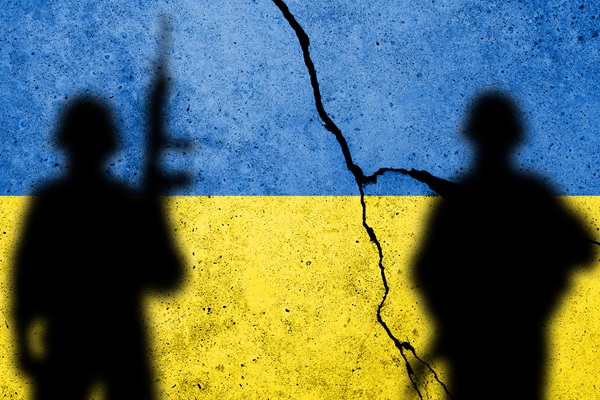.png)
Distraction Pays: How Political Power Manipulates The Spotlight
The easiest way to control a narrative is not through lies, but through distractions — not by silencing the truth, but by drowning it in noise.


Steve Correa, Executive Coach and HR Consultant, brings 30+ years of CXO experience across industries and is the author of Indian Boss At Work.
May 16, 2025 at 3:41 PM IST
A long time ago, just yesterday, far away, around the corner, an announcement:
A stone-faced anchor stares solemnly into the camera
Anchor: Good evening! Tonight, we’re stepping away from the usual discussions of inflation, unemployment, and corruption to bring you a lively, emotionally engaging national story. Whether it’s a skirmish at the border, an emerging challenge, or a viral outbreak, we’re here to cover it all!
We encourage you to show your support by waving flags and sharing hashtags! Let's come together and express our feelings passionately. Just keep in mind—any similarity to sincere concern is purely coincidental. (Cue anthem remix. Fade out.)
Distraction is not new. It’s an ancient political strategy—rebranded, retweeted, and delivered with high-definition drama. This isn’t just a modern-day problem. History offers a catalogue of cases where leaders, facing domestic turbulence, have skillfully—or cynically—redirected the national gaze.
In the world of politics, we often catch just a glimpse of a much bigger picture. Like skilled magicians, political leaders cleverly create distractions that steer our attention away from uncomfortable truths and toward more emotionally engaging displays. When challenges arise, a government’s reliable companion can be a well-timed diversion: whether it’s a border skirmish, an invented adversary, or a trending threat that allows them to exercise control, suppression, or unity—all on their own terms.
During the Kurukshetra war, the Kauravas orchestrated a masterful distraction on the 13th day by luring Arjuna away from the main battlefield through a staged challenge from the Trigarta brothers. With Arjuna occupied, Dronacharya launched the complex Chakravyuha formation, knowing that only Abhimanyu—Arjuna’s young son—could breach it but not exit. Isolated and surrounded, Abhimanyu was brutally killed in a violation of war ethics. This strategic distraction not only eliminated a key warrior but also emotionally shattered the Pandavas, especially Arjuna, shifting the psychological momentum of the war.
Let us take a few more examples:
Consider the Falklands War of 1982, when Argentina’s military junta, grappling with an economic crisis and civil dissent, opted to invade a remote cluster of British islands. This decision momentarily sparked nationalist fervour and diverted citizens from pressing concerns such as inflation, unemployment, and repression. However, the gamble backfired; Argentina lost the war, leading to the dictatorship’s rapid collapse. The brief moment of unity could not endure the harsh reality of failure.
In Pakistan, we encountered a familiar situation during the Kargil conflict of 1999. General Pervez Musharraf, the army chief at that time, made a bold move by initiating an incursion into Jammu and Kashmir. This took place during a challenging period when Pakistan was dealing with economic sanctions and political unrest, leading many to view this military action as a way to shift the focus. Although it stirred some feelings of patriotism, the following retreat and the consequences of diplomatic efforts highlighted the considerable costs of using distraction as a strategy. Ultimately, Musharraf would seize power in a coup, adding even more layers of complexity to the issues surrounding military opportunism and the ongoing political crisis.
Distraction can take many forms, not just in military adventures. Public health emergencies, too, have been harnessed to shift focus. For instance, during the early days of the COVID-19 pandemic in China, information was kept under tight wraps, and whistleblowers faced silence—not just to avoid panic, but also to shape how people viewed the state's reliability. In a similar vein, governments around the globe encountered criticism for using lockdowns and border control measures, not just for the sake of public safety, but also to strengthen their power, silence dissent, or sidestep criticism regarding other policy failures.
The United States offers a vivid illustration of how engineered distraction can play out. Back in 1998, as President Bill Clinton grappled with impeachment over the Monica Lewinsky scandal, he decided to order missile strikes against targets in Sudan and Afghanistan. While these strikes might have had genuine security reasons behind them, the timing raised some eyebrows. Many critics referred to this as “wagging the dog,” drawing a connection to the recent film of the same title, where a spin doctor and a Hollywood producer concoct a war to divert attention from a presidential scandal.
Wag the Dog (1997) isn’t just any movie; it's a thought-provoking allegory that really encourages us to reflect. In the film, we follow a fictional president ensnared in a scandal just before re-election. Enter Conrad Brean, a somewhat disheartened political fixer, who steps in to orchestrate a fake war with Albania. Together with a vibrant Hollywood producer, they skillfully create everything from doctored war footage to an imaginary hero named “Old Shoe.” They artfully shape how the public, the media, and even the very notion of truth are perceived. Even though the war is make-believe, its emotional impact runs deep. It evokes strong feelings of patriotism, muffles tough questions, and helps the scandal fade from our memories. As the producer wisely puts it, “If it’s not on TV, it didn’t happen.”
What makes the film truly striking is how closely it reflects the world we live in today, especially in politics. In our social media-driven society, we see disinformation, fake events, and emotional manipulation all around us. Politicians and their teams often tap into feelings of fear, pride, and moral outrage to influence public opinion. Unfortunately, this can distract us from urgent issues like economic challenges, institutional decline, and corruption that really need our attention.
Vladimir Putin’s incursions—first into Georgia in 2008, then Crimea in 2014, and later Ukraine in 2022—came with a series of domestic challenges, such as declining approval ratings, sanctions, and growing internal dissent. What's fascinating is how these military actions shifted the conversation towards comforting themes of national defence and ethnic solidarity. History shows us that few things can bring a nation together quite like the vision of an existential threat.
India has its own share of examples when nationalilst sentiments took the attention away from economic challenges and rural distress.
This manipulation isn’t just confined to authoritarian regimes; democracies can be affected too! It's interesting to see how image-making, distraction, and the politics of fear can exist alongside free speech, especially when the public tends to prioritise emotions over inquiry. That truly highlights a deeper tragedy.
Distraction really does work! It taps into our natural instincts. During times of national confusion, it helps us find clarity. When we feel overwhelmed, it provides us with a focus. And when the truth gets complicated, it simplifies things with a story of Us versus Them. “Distraction pays,” not because it is noble, but because it is effective. Leaders who master it don’t need to govern well—they need to manage perception. As engaged citizens, our challenge is to ask not only what we are being shown, but also what we might be distracted from.
In the end, the price we pay for distraction is our connection to the truth. When the truth starts to fade, what we have left is more like a narrative—carefully crafted and chosen. It might not truly represent reality, but if we hold onto it, it can feel just as genuine.



